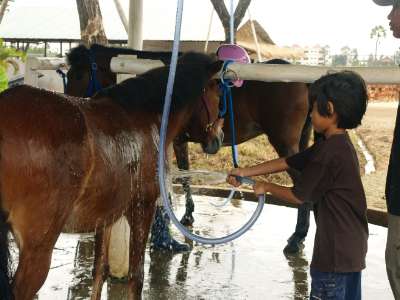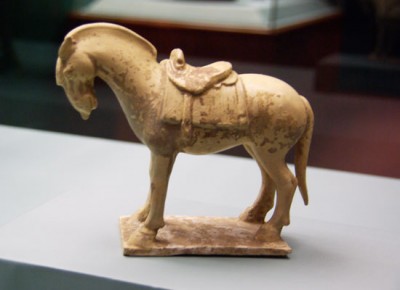Beijing-based China Daily lately had a feel-good story about Maoyidong Bawudong, a Uyghur pear farmer turned race horse trainer in northwesterly Xinjiang province. The 63 year old spent US$22,000 on a “British breed racing horse,” which makes it the costliest beast in Heshilike Township, where Maoyidong’s stable of 12 is one of 400 (out of 1,500 households) raising racing horses.
The story comes at an interesting time: racing for gambling is banned in China – the horses are for “folk sport events,” reports China Daily – but there’s increasing hope that China will rescind its ban to reap the tax take that legalised betting would bring, particularly in straitened economic times. A ‘test race’ on the expensively built track in the centre-of-country city of Wuhan went well earlier this year and Hong Kong investors there are waiting for a green light for regular races with bookies in operation.
Back in Xinjiang, Maoyidong like most locals gave up their forefathers’ nomadic herding existence long ago to farm according to China’s socialist system. He hires a professional trainer for his horses, Wulun Bayier, a veteran of state-run Xinjiang Zhaosu Hourse-Breeding Farm, the largest supplier of bloodstock to China’s army in the 1970s. The farm still boasts one of the country’s largest varieties of horse breeds, according to China Daily reporting.
Prize money from Xinjiang races isn’t enough to pay the RMB6,000 annual upkeep for each horse and barely pays back the RMB25,000 he spent on a training ranch.
Racing and good breeding are matters of pride for local Uyghurs and ethnic Kazakhs, as anyone who’s been to the Sunday horse market in the old westerly city of Kashgar will attest. Favourite breeds include the local Yili, named for the town on the Kazakh-China border, and ponies from Mongolia, which borders Xinjiang to the north.
Local government grant-aids the racing festivals to the tune of RMB1 million – EUR100,000 – a year. China Daily also quotes local breeders/farmers as selling their race-winners to tycoons from China’s wealthy east coast. That explains the big shot I saw showing off to his friends tearing around a rough race track on a Yili earlier this year in Hangzhou, the wealthy lakeside metropolis south of Shanghai.
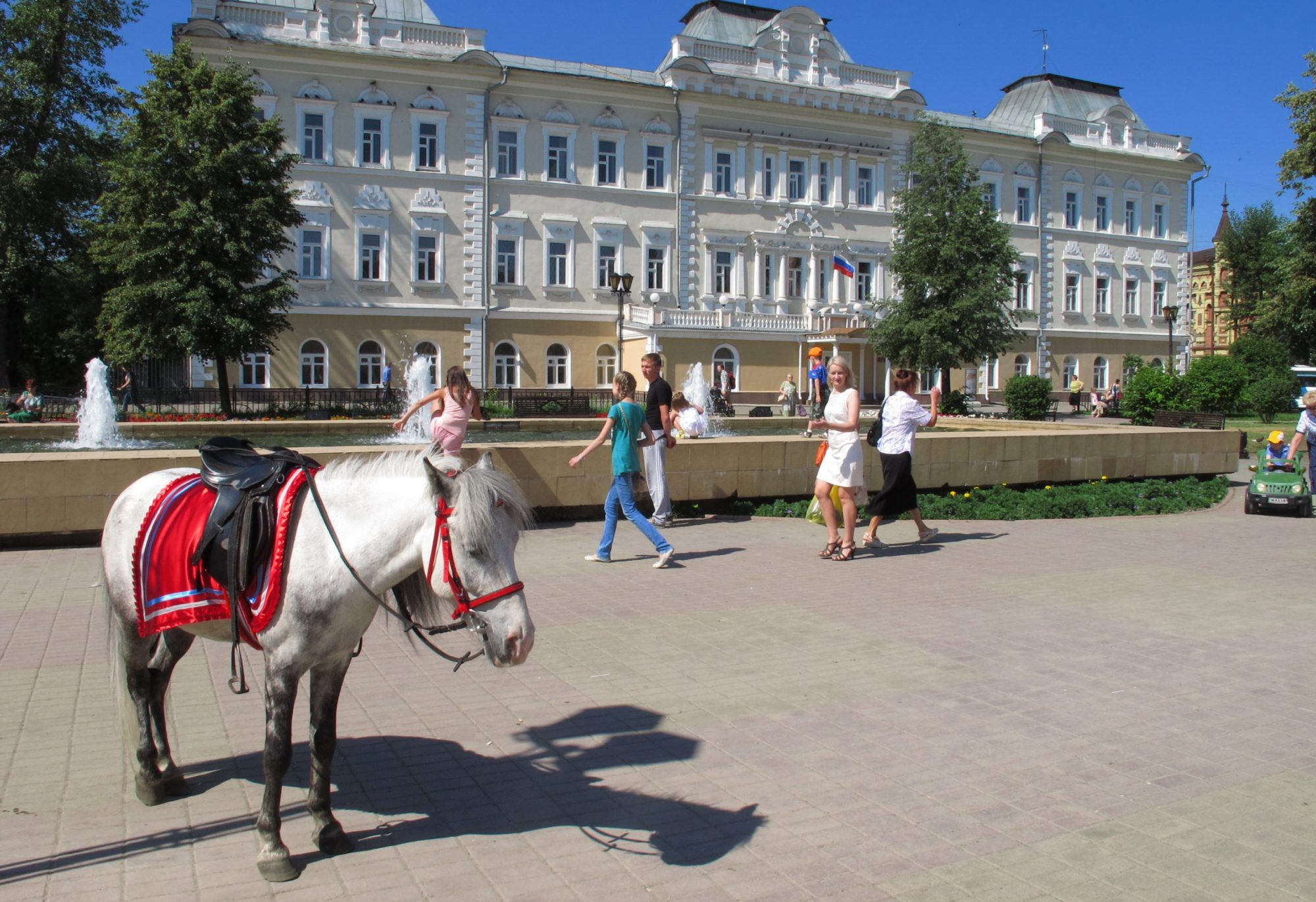
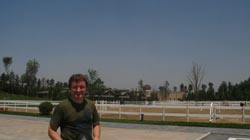


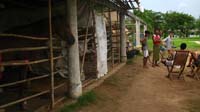
 riding school nearly a decade in business, is doing alright: having added new stables and outdoor arenas they’re currently building a new clubhouse for members.
riding school nearly a decade in business, is doing alright: having added new stables and outdoor arenas they’re currently building a new clubhouse for members. 
